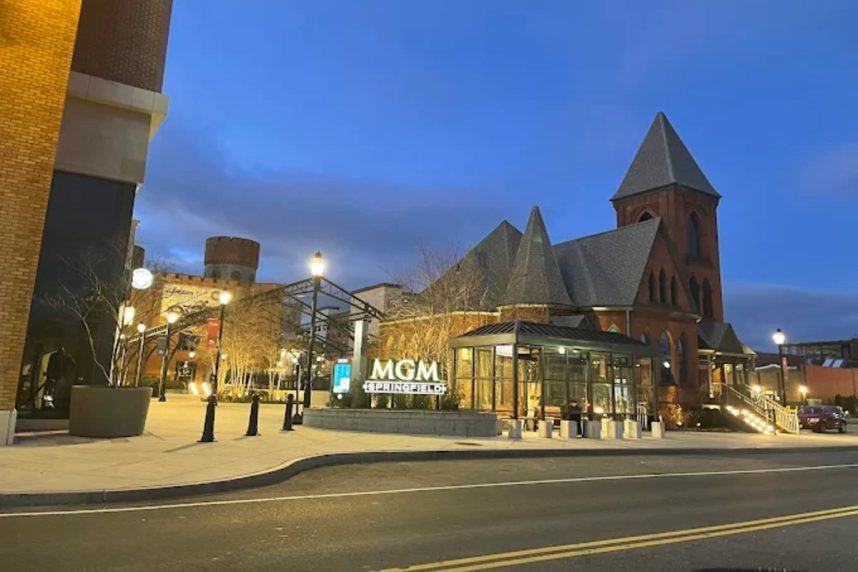Massachusetts Gaming Commission Critiqued in State Audit for Responsible Play Failures
Posted on: August 29, 2025, 09:46h.
Last updated on: August 29, 2025, 09:54h.
- The Massachusetts Gaming Commission has been criticized by the state’s auditor
- An audit of the gaming regulatory agency found shortcomings in responsible play promotion
The Massachusetts Gaming Commission (MGC) meets more frequently than any other state gaming regulatory in the nation. A recent audit concludes the agency needs to do more.

Massachusetts State Auditor Diana DiZoglio’s Office recently completed a review of the MGC for the period ranging from July 1, 2020, through June 30, 2023. The summary of the investigation wasn’t exactly favorable, as auditors wrote that the MGC “failed to monitor sports betting advertisements,” failed to ensure that GameSense agents on casino floors were properly trained, and that the agency does not have an “accountability process for reviewing and entering into employee settlement agreements.”
The Massachusetts Gaming Commission has a responsibility to follow the law and provide adequate oversight, especially pertaining to gambling addiction issues,” said DiZoglio. “Our findings reveal regulatory breakdowns that we encourage the Commission to continue addressing over the course of the next six months, at which time we will conduct our post-audit review.”
The auditor’s report said the MGC’s shortcomings have possibly allowed the state’s three casinos and online sportsbooks to “enhance their profitability at the expense of their patrons’ well-being.”
Responsible Gaming Letdowns
The crux of the Massachusetts auditor’s report focused on the MGC not doing enough to safeguard gamblers. The audit found that 17 advertisements related to sports betting didn’t include required responsible gambling information, including the Massachusetts Problem Gambling Helpline.
“These failures risk exacerbating gambling addiction and exposing youth to harmful promotional materials,” the audit read.
GameSense agents, required to be on the three casino floors at Encore Boston Harbor, MGM Springfield, and Plainridge Park, were also found to be inadequately trained. GameSense employees wear green shirts, and their dedicated resource centers help patrons understand how casino games work and each game’s associated odds.
GameSense agents are also to assist in promoting responsible gaming and helping those seeking to curb their play find resources. GameSense was developed by the British Columbia Lottery Corporation, which was adopted by the MGC through a licensing agreement in 2015.
Without proper training, these agents are ill-equipped to help individuals struggling with gambling addiction. This undermines the very support systems designed to mitigate gambling-related harm,” the audit detailed.
The audit additionally reported that the MGC needs to implement protocols for employee settlement agreements. Without such a transparent process, DiZoglio said the MGC could use public funds to “silence victims while shielding wrongdoers, risking erosion of public trust.”
Record Revenue
Massachusetts’ commercial casino market only dates back to 2011 with the passage of the Expanded Gaming Act. The first casino to open came in 2015 at Plainridge Park, a slots-only facility.
MGM Springfield opened in August 2018, and Encore Boston Harbor commenced operations in June 2019. Retail sportsbooks opened in early 2023, and mobile bets came online in March 2023. With 2020 the exception, commercial gaming revenue in Massachusetts has grown each year since 2019.
Casino revenue was $1.02 billion in 2021, $1.13 billion in 2022, $1.66 billion in 2023, and $1.86 billion in 2024. State gaming tax revenue last year totaled $471.4 million.
Gaming taxes benefit the Massachusetts Gaming Local Aid Fund, the state’s public infrastructure fund, state education, public health, and the horse racing industry.
Last Comments ( 3 )
This problem is not limited to Massachusetts. Here in Pennsylvania, the state's gaming control board is not legally accountable to anyone, and it regularly fights to help the casinos that it regulates to the detriment of the public -- and even to the detriment of other legal gambling operators that compete with casinos who are unregulated (e.g. Pace o Matic) or that are regulated by a different oversight agency (e.g. the PA Lottery). For a few recent examples, see the PGCB's recent public pledge to help the struggling Presque Isle casino, its approval of the sale of the Happy Valley Casino to an out-of-state casino operator who would otherwise be ineligible to own a PA casino, and its Board members' obvious concerns at that approval meeting that the Happy Valley Casino would not maximally exploit the students at Penn State because it was not planning to open a retail sportsbook at the casino's upcoming grand opening. It is almost as if the PGCB is incentivized to overlook the harms caused by the state's casinos because the PGCB's power and influence increases along with the size of the state's legal casino industry and the amount of gambling tax revenue that it generates. Who would have thought that these unaccountable and under-resourced gambling regulatory boards would ever be captured by the multi-billion dollar industry they are charged to regulate?
I agree with Dan. Like a fast food place stating if you want diabetes, high blood pressure, high cholesterol, don’t eat here every day lol. One drug dealer was caught yrs ago using his mom to place sports bets. I bet there are many “runners” active.
On the front side of a blank 3X5 card please write an alphabetical list of all casinos who would refuse to allow a casino patron to gamble away their entire life savings in a two-hour visit to their casino. You'll still have that blank 3X5 card. Responsible? Perhaps not.